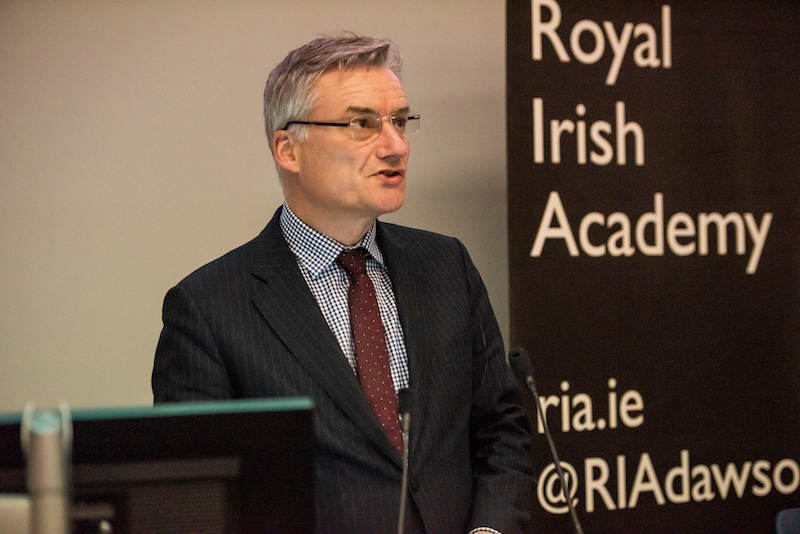Provost Patrick Prendergast has welcomed a new government decision to create a specific department for higher education and research, hailing it as a move with “the potential to be a new beginning for the third level sector after a decade treading water”.
This evening, Fine Gael’s Simon Harris was confirmed as minister for higher education, innovation and research – a new cabinet position, which replaces the junior higher education ministership previously occupied by Mary Mitchell O’Connor.
In the Dáil this evening, new Taoiseach Micheál Martin confirmed the creation of a new department for higher education and research.
Third-level, he said, “is going through a major transformation and needs clarity and engagement from government”.
Prendergast told The University Times in a statement this evening that “higher education and research have been brought together and can now work together for the benefit of students, industry and the country”.
His comments are likely to be echoed across third-level, where calls for a department of higher education have become increasingly audible in recent times.
In a press statement this evening, Jim Miley, the director general of the Irish Universities Association, said the decision is a “key change in government”, which he said “clearly recognises the central importance of universities and other third level institutes as producers of the talent pipeline for the economy and as hubs of research and innovation”.
“Critically, it brings both parts of the higher education system together for the first time”, he said.
Last month, over 800 academics and researchers – including Trinity’s Senior Lecturer Kevin Mitchell and Luke O’Neill, the Trinity professor known for his work on the coronavirus – called for its establishment, while Prendergast wrote in the Irish Times in June that a department with a €3 billion annual budget “could become a major driver in Ireland’s efforts to become one of the world’s leading knowledge economies”.
Third-level has been surviving on scarce state resources for years now, with funding per student down by 43 per cent over the last decade.
University heads have become more full-throated in recent times in their criticisms of the government when it comes to funding issues. In April, Prendergast told Pat Kenny in a Newstalk interview that it’s “not good enough” that education has been deprioritised when it comes to state funding decisions.
Now, with the pandemic causing serious financial concerns for colleges, Harris will have to figure out a way to solve a long-term problem exacerbated by the virus.
The University Times revealed in early June that Trinity risks running out of cash by September 2021 if strict cutbacks are not introduced in the coming months.
In the worst-case scenario, the impact of the coronavirus could see Trinity’s unrestricted cash – the amount of money College has to spend that is not tied to a specific usage – plummet into the red by the summer of 2021, according to excerpts from a confidential report obtained by this newspaper.
The Department of Education has said it will only step in with financial support in extreme cases, where cashflow problems are serious enough to threaten the viability of a university or college.







